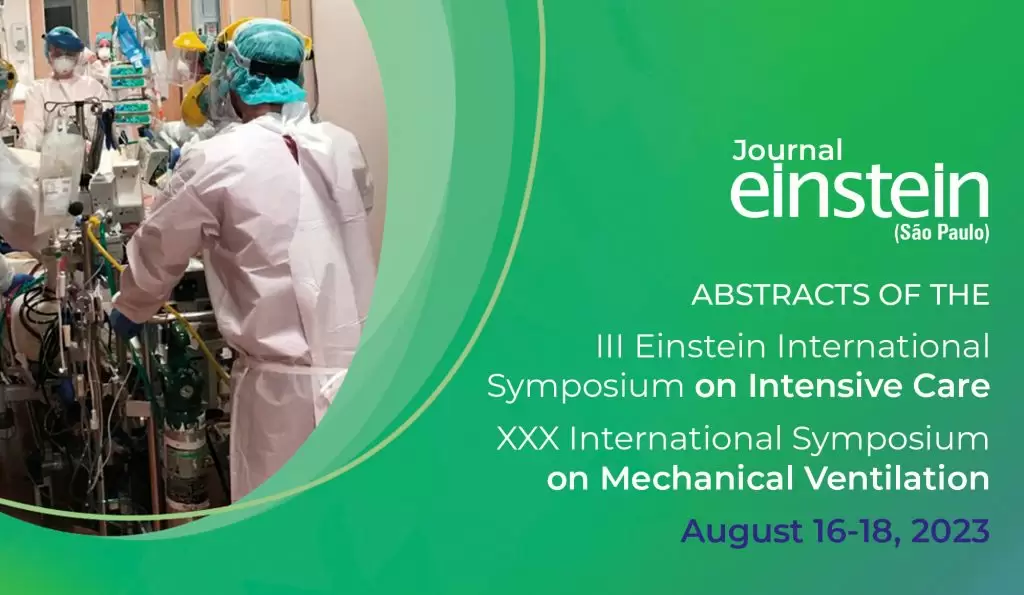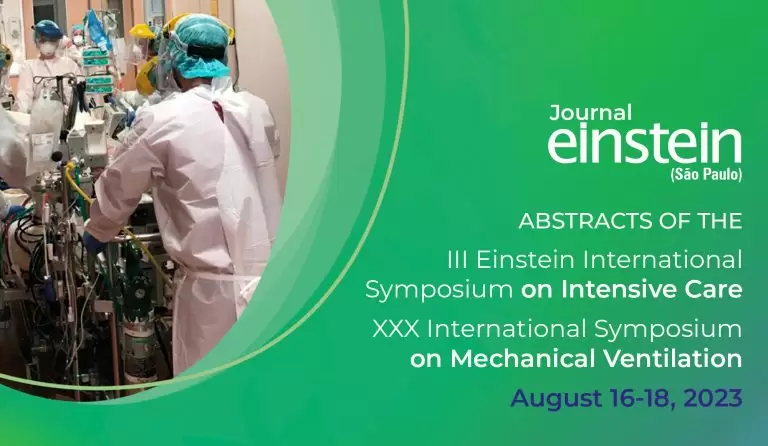einstein (São Paulo). 14/ago/2023;21(Suppl 1):EISIC_MV0004.
Impact of peripheral muscle strength on extubation success after cardiac surgery
DOI: 10.31744/einstein_journal/2023ABS_EISIC_MV0004
III Einstein International Symposium on Intensive Care and the XXX International Symposium on Mechanical Ventilation. Aug 16-18, 2023.
Category: Cardiology
Introduction:
Although an experienced clinician can predict the likely outcome of attempting to wean the patient from mechanical ventilation, it is desirable to have predictive indices that can be easily measured and widely applied.(1) In this scenario there is a need to understand whether peripheral muscle strength can be a predictor after cardiac surgery.
Objective:
To evaluate the impact of peripheral muscle strength on extubation success after cardiac surgery.
Methods:
This is a prospective cohort study. Evaluation of ventilatory, peripheral muscle strength (MRC) and rapid shallow breathing index (IRRS) was performed at 30 and 10 minutes during the Spontaneous Breath Test (SBT). Patients were extubated and followed up for 48 hours to verify the success or failure of extubation and to compare the variables collected preoperatively.
Results:
Sixty-six patients were evaluated, 55 (83%) were classified as successful and 11 (17%) as failure to wean. MRC 30 minutes before SBT with cutoff value 44±4, with sensitivity and specificity, respectively 77% and 84%, AUC 0.864 and 95%CI: 0.69-1.00. On the other hand, the MRC 10 minutes before SBT owed a cutoff value of 49±5, with sensitivity of 55%, specificity of 80%, AUC 0.845 and 95%CI: 0.77-1.00. Finally, the IRRS 10 minutes before SBT with a cutoff value of 45±4, sensitivity 30%, specificity 70%, AUC 0.476 and 95%CI: 0.22-0.71.
Conclusion:
We conclude that peripheral muscle strength is a predictor of extubation success in patients undergoing cardiac surgery.
115



